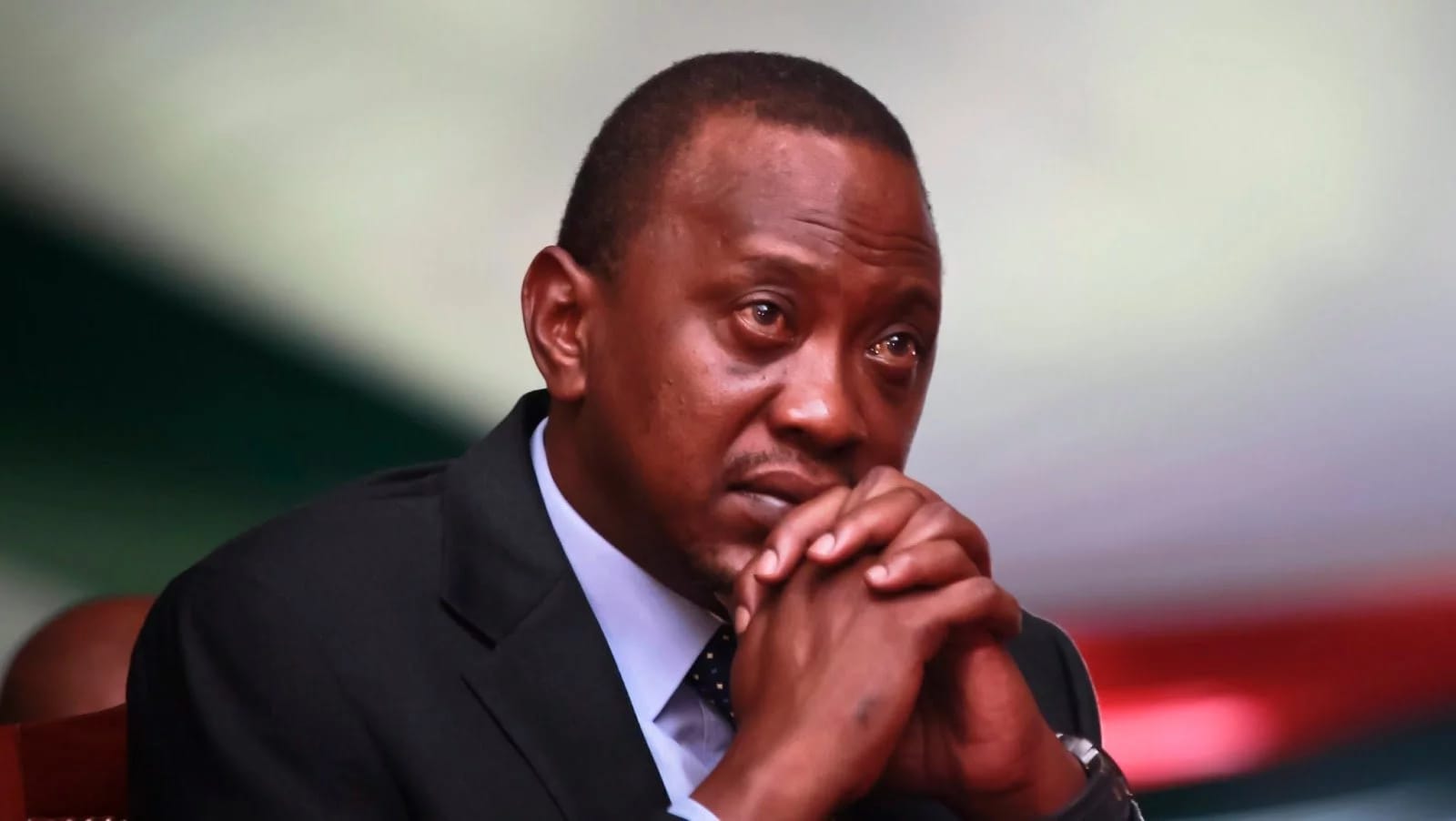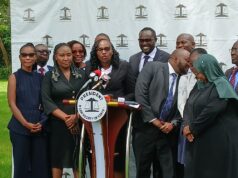With a lack of rain in many parts of the country, Kenyans are currently grappling with severe drought, producing a complex web of impacts that spans many sectors of the economy.
The effects of drought expansion in the country include: reduced crop and forest productivity, reduced water levels, increased livestock and wildlife mortality rates, damage to wildlife and fish habitat, loss of human life and low turnout for voter registration in areas hardest-hit by famine.

President Uhuru Kenyatta on his tour of Nyeri County on Friday, January 20, prayed for rain as the country comes to grips with the effects of drought.
The Head of State had embarked on a nationwide tour, beginning Thursday, to mobilise Kenyans who are eligible to vote to register as voters ahead of August 8 general election.
And on his stopover at Karatina, a crowd which had gathered for Uhuru’s roadside address requested him to lead them in a word of prayer before he leaves.
Uhuru obliged. “Lord, we ask for your blessings. Grant us peace in our country. Give us prosperity. Bless us with rain so that there is plenty for us and pasture for our livestock. We also pray that you grant us victory against that guy who keeps disturbing us,” prayed the President in Kikuyu, translated to English.
And shortly after he left for Nyeri Town, rain poured like a waterfall, with Karatina residents left discussing in hushed tones a miracle that had happened following the head of state’s prayer.
Uhuru was forced to cut short his Nyeri Town tour following the rains, but he promised to revisit the County on Sunday.
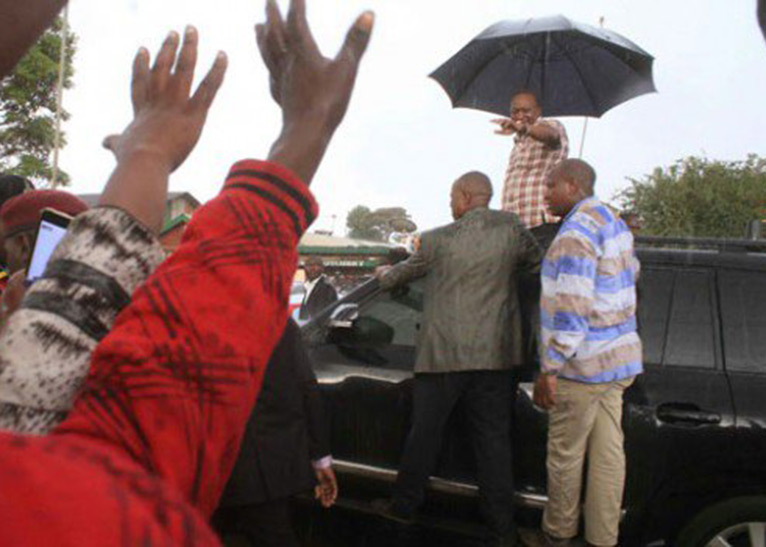
On Saturday, Monday and Tuesday, the President will tour Meru, Laikipia and Kirinyaga counties respectively.
Mombasa and Nakuru and many more counties are lined up as the next areas the President will visit to urge Kenyans to register to vote.
The United Nations had said in December, 2016 that Kenya needs to brace itself for worsening drought in 2017.
The UN had used a new early warning system that predicts the availability of forage for animals in the country’s arid livestock-dependent north.
People and animals’ lives are at risk because they have not had a chance to recover from drought in 2014 as rains were also poor in 2015 and 2016, the U.N. Food and Agriculture Organization (FAO) said.
“We really are concerned that the situation is going to deteriorate rapidly early into next year,” Piers Simpkin, a livestock expert with FAO in Kenya, told a news conference.
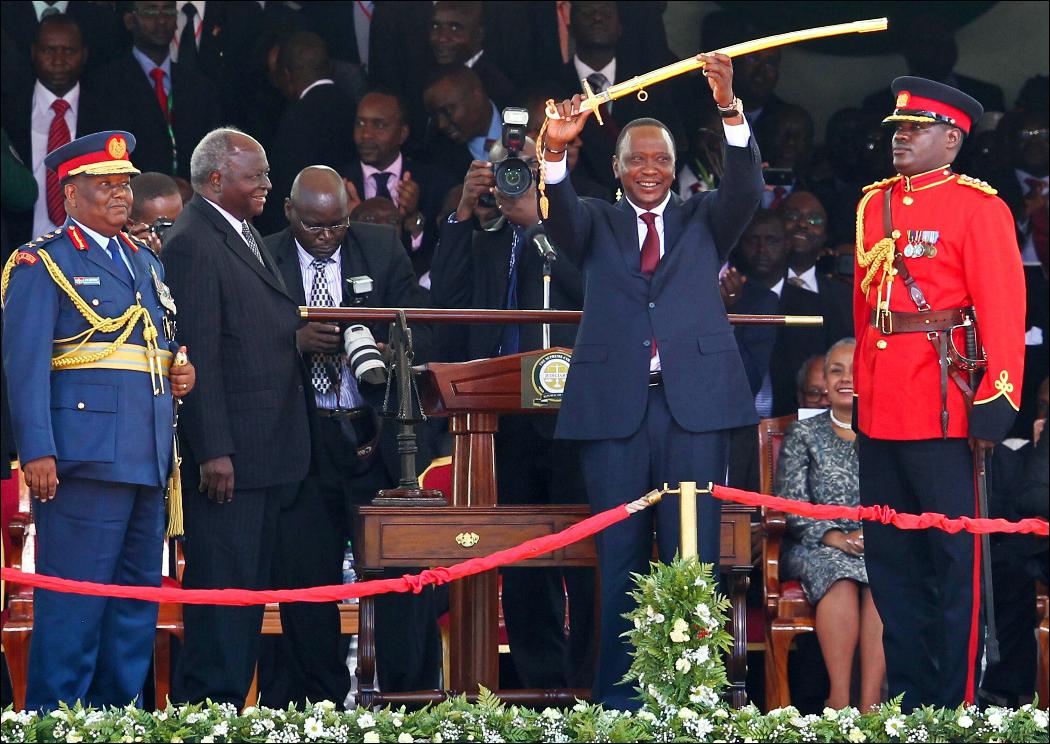
“There is serious drought looming in early 2017.”
Large swathes of Africa are experiencing severe drought, with 39 million people hit by a crisis predicted to peak early 2017.
The predictive livestock early warning system, developed together with Texas A and M University, shows how much forage will be available in Kenya up to May 2017, using computer modeling of water flows and vegetation growth.
“The months of April and May will present a big challenge,” said FAO’s Joseph Matere, an expert working on the early warning system.
Kenya’s long rains season, from March to May, is critical for the wellbeing of its farmers and livestock herders.
The 2016 long rains were poor, leaving 1.3 million Kenyans in need of food aid, according to the government, which has started distributing maize, beans and rice to hungry people in the worst-affected northern and coastal regions.
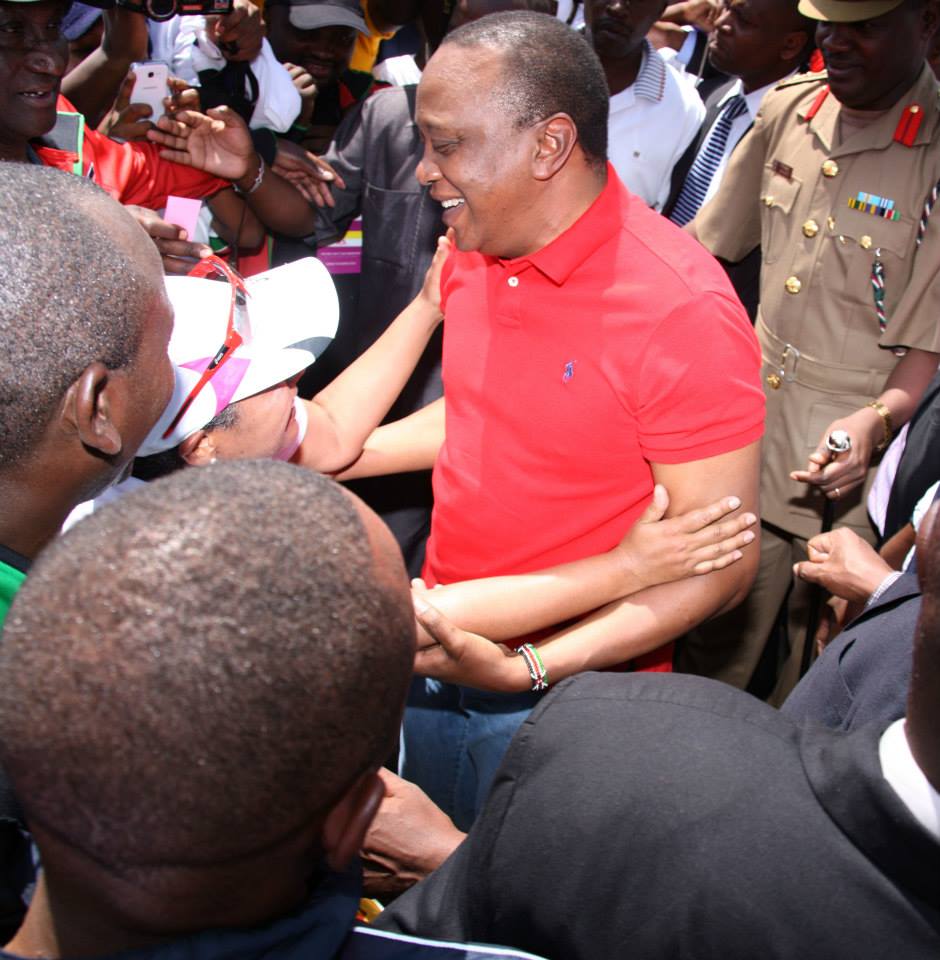
Long rains in 2017 are also likely to be poor, with a delayed start and below average rainfall, Matere said.
FAO has released $400,000 (KSh42 million) to spend in Kenya on training, vaccination, animal feed and encouraging people to sell animals before they fall sick.
“Generally, responses to drought or crisis are too little and too late,” said Simpkin, adding that it can take several months for emergency aid to reach people on the ground.
“In the past, money for water trucking is released after the rains have fallen.”
Early responses cost $10 (KSh1000) per family, compared to $50 (KSh5, 200) per family at the height of a crisis, he said.
The drought situation in the arid and semi-arid areas in the country is so dire that ongoing IEBC voter registration in Samburu County has been affected, with some residents fleeing due to drought.
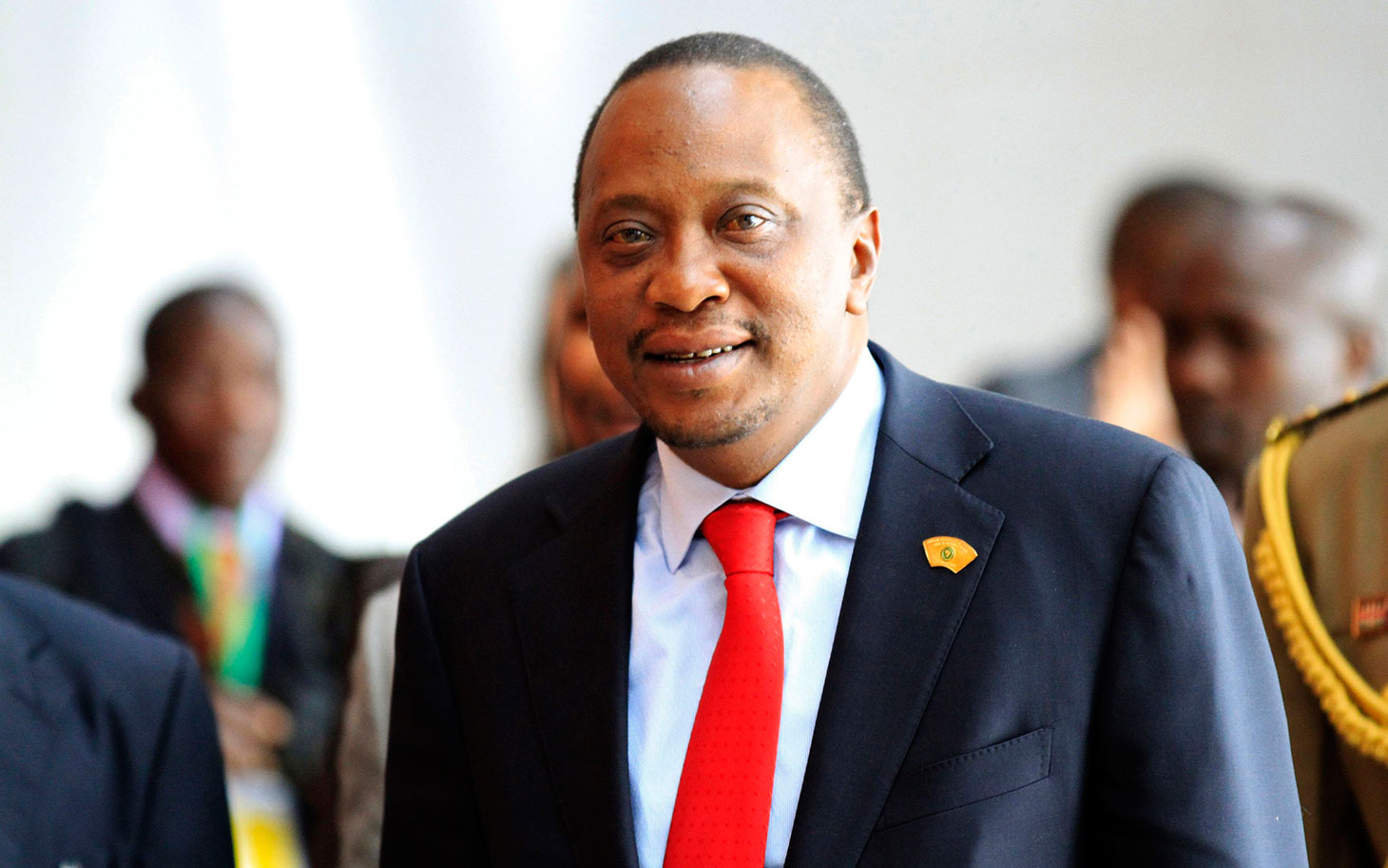
Samburu West election co-ordinator Daniel Learum however said they would ensure that residents who had migrated to areas within the constituency were registered.
A new campaign by IEBC to register voters kicked off countrywide Monday, January 16 with the electoral body seeking to list six million new voters.
IEBC Chief Executive Officer, Ezra Chiloba, said his team seeks to add six million voters to the 15.9 million already registered.
Some 7,793 biometric voter registration kits will be used during the campaign to be executed at over 24,000 polling centres around the country.
The IEBC has hired over 21,421 staff for the campaign, including 290 registration officers, 290 assistant registration officers, 1,775 voter registration assistants, 2,900 ward-based voter educators, 580 ICT support assistants and 15,586 clerks.

